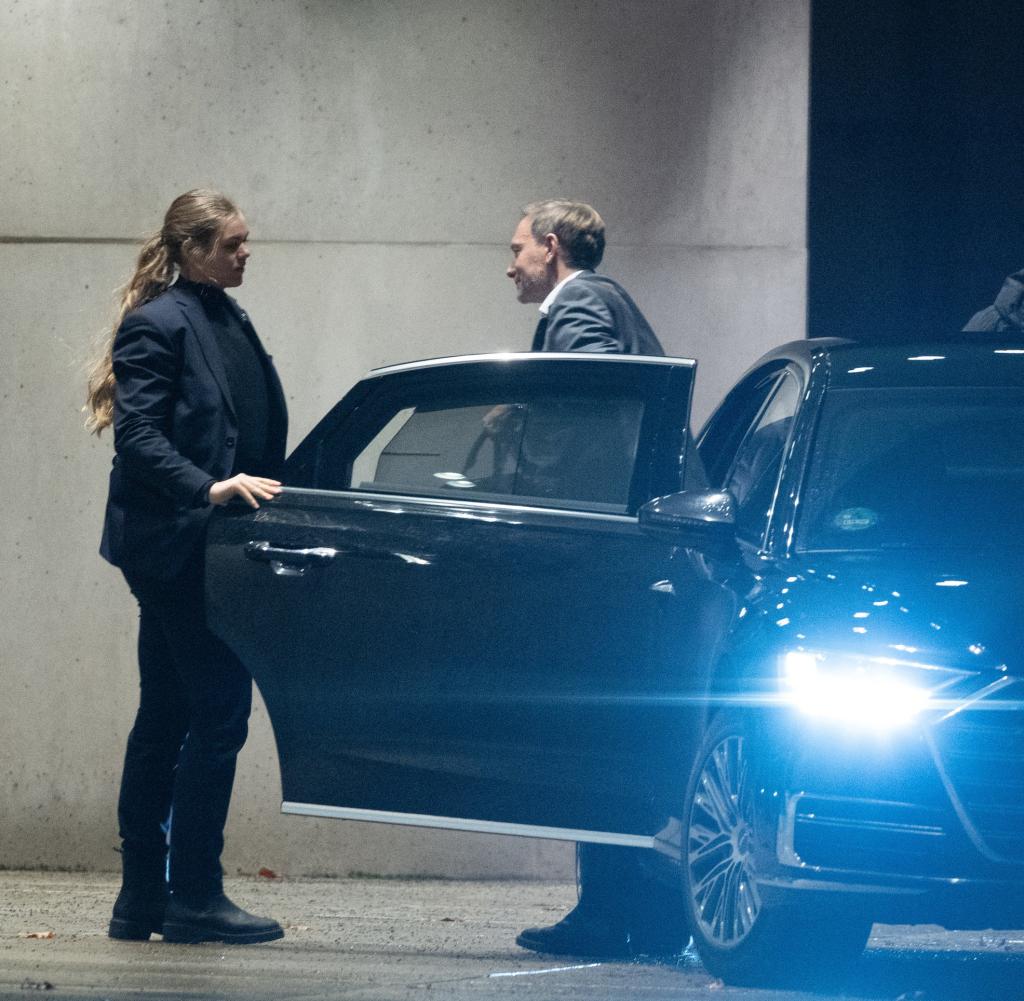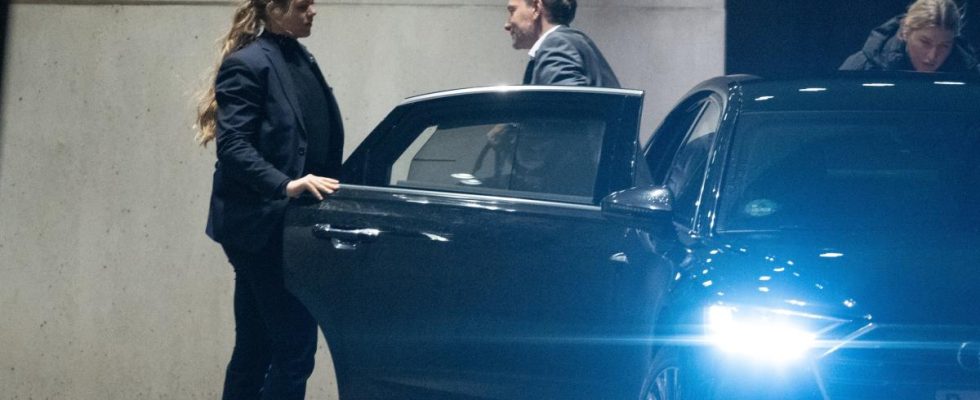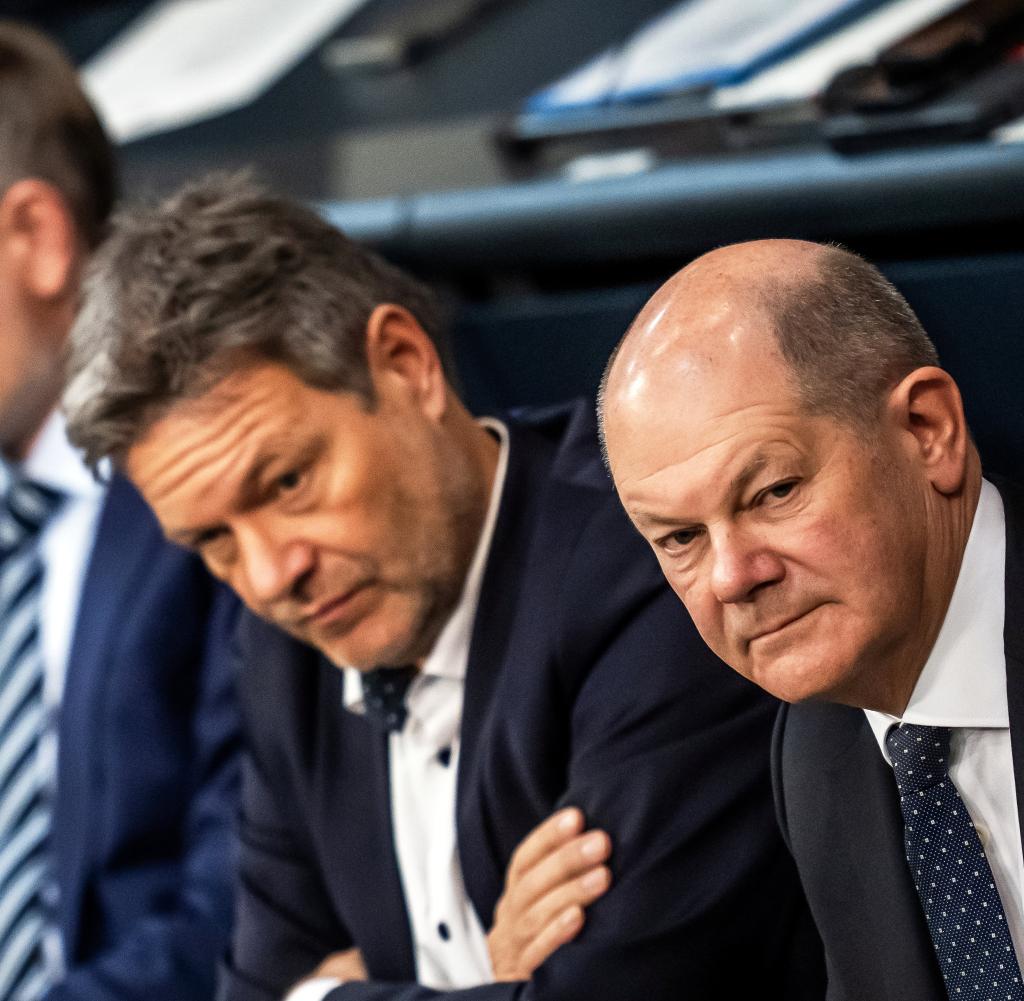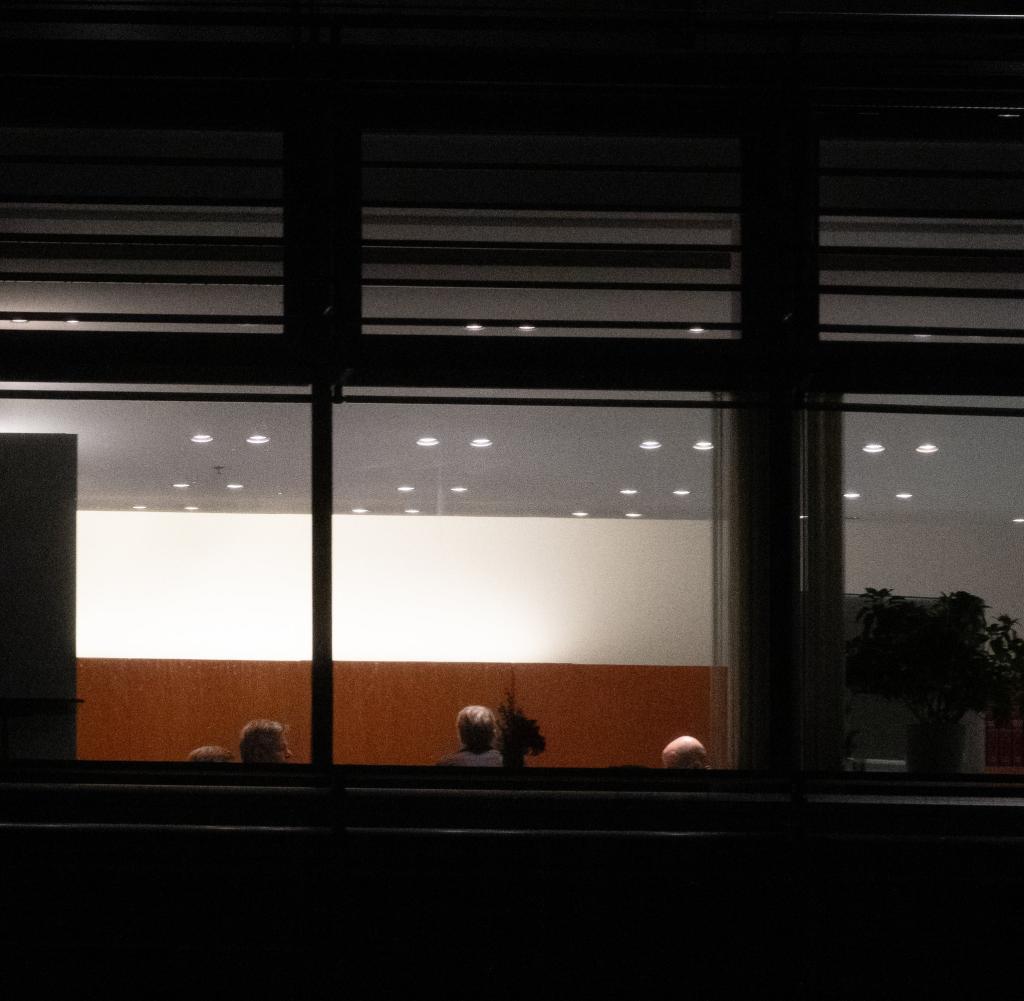Scholz, Lindner and Habeck postpone the “decisive round” on the 2024 budget

Finance Minister Lindner comes to the Chancellery for talks
Source: dpa/Christophe Gateau
The talks on the budget crisis should enter the “decisive round” on Sunday evening. But Scholz, Lindner and Habeck postponed their meeting again. FDP parliamentary group leader Christian Dürr insists on not abandoning the consolidation path when drawing up the budget.
DThe leaders of the traffic light coalition are still looking for money for the federal budget for 2024. According to dpa information, the negotiations were postponed to Monday late on Sunday evening. Nothing was initially known about the course of the talks for which Federal Chancellor Olaf Scholz (SPD), Vice Chancellor Robert Habeck (Greens) and Finance Minister Christian Lindner (FDP) met in the Chancellery on Sunday evening. At the SPD party conference at the weekend, Scholz expressed his confidence that an agreement could be reached. He ruled out cutting social benefits.
FDP parliamentary group leader Christian Dürr has once again spoken out against tax increases to solve the budget crisis. “Tax increases in a country with the highest taxes are forbidden,” he said on Sunday evening in the ZDF program “Berlin Direkt”. Anyone who talks about wanting to tax the “super-rich” more heavily in Germany is usually talking about medium-sized family entrepreneurs. “That means you’re not taxing anything other than jobs here,” he said.
Dürr advocated not abandoning the consolidation path when preparing the budget. “The federal budget will amount to around 450 billion euros next year. That is significantly more than in pre-Corona times. That means the overall volume has actually increased,” he said. Now you can “take your time” and take a closer look at where you can save so that you can set up a solid budget. “Solidity must apply now. That’s what the federal states still have to do now. The federal government is now delivering.”
Dürr explained that he didn’t think much of red lines and that he didn’t understand Chancellor Olaf Scholz (SPD) to draw them when it came to social spending. It’s not about tearing down the welfare state, but rather looking at how to get more people into work: “And I don’t think there’s much disagreement in this coalition.” Scholz had emphasized that there would be no reductions with the SPD of the welfare state in Germany.
The traffic light coalition is struggling to plug a 17 billion euro hole in next year’s budget and to enable investments in climate protection and the modernization of the economy in the coming years. At the weekend, the SPD indirectly campaigned for a renewed suspension of the debt brake. The party conference decided that “constitutionally stipulated leeway for the budget” must be used in the interests of the population. The war in Ukraine created the prerequisites for an emergency situation that would enable increased borrowing.
There is still light: crisis meeting in the Chancellery on Sunday
Source: dpa/Christophe Gateau
On Sunday evening, Scholz, Finance Minister Christian Lindner (FDP) and Vice Chancellor Robert Habeck (Greens) wanted to discuss again how they can close the budget gaps resulting from the Federal Constitutional Court’s ruling. According to coalition circles, the consultations were considered a “decisive round”. After weeks of discussions, Scholz is now pushing for a solution. Now comes the next perhaps decisive round.



